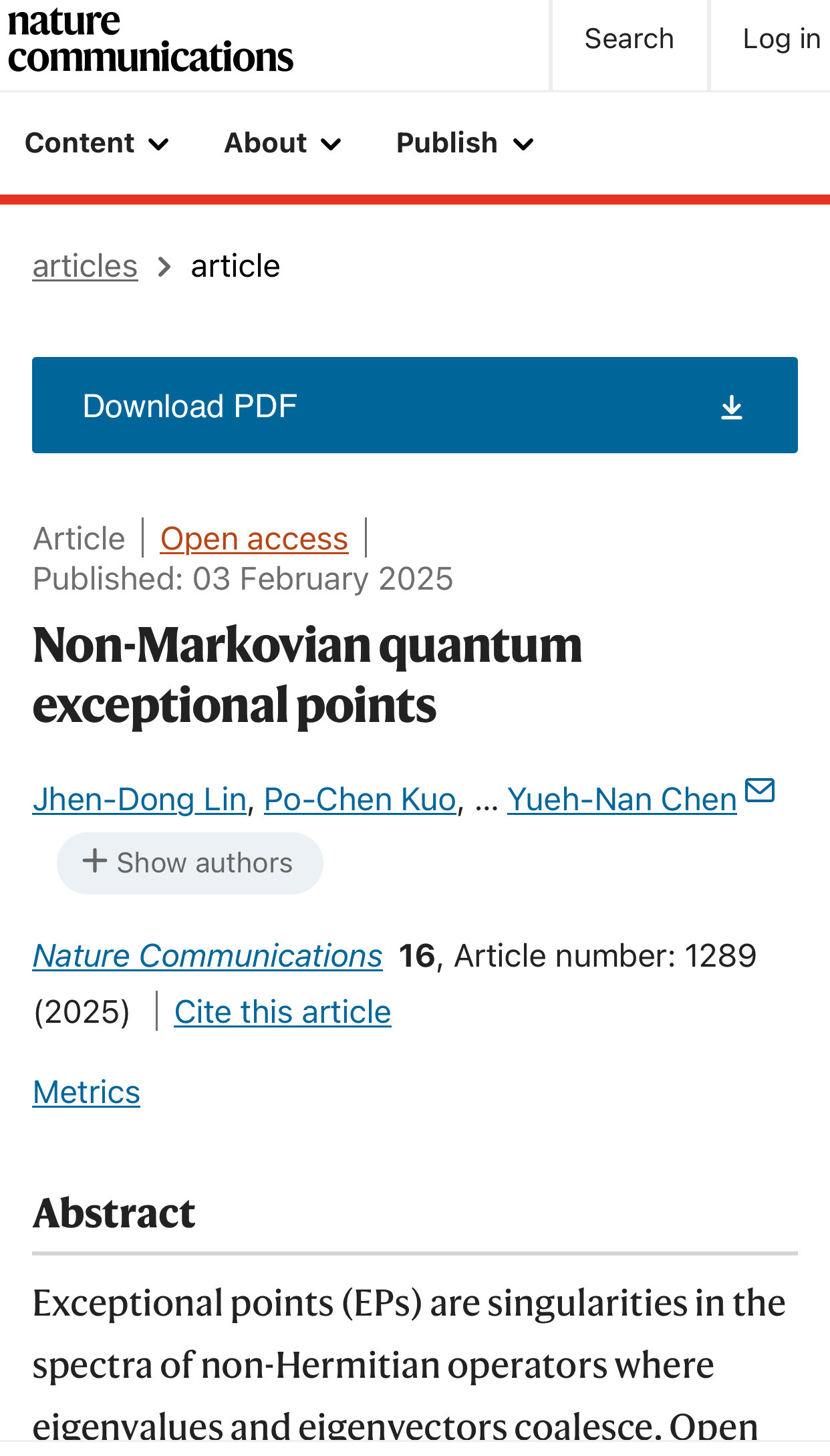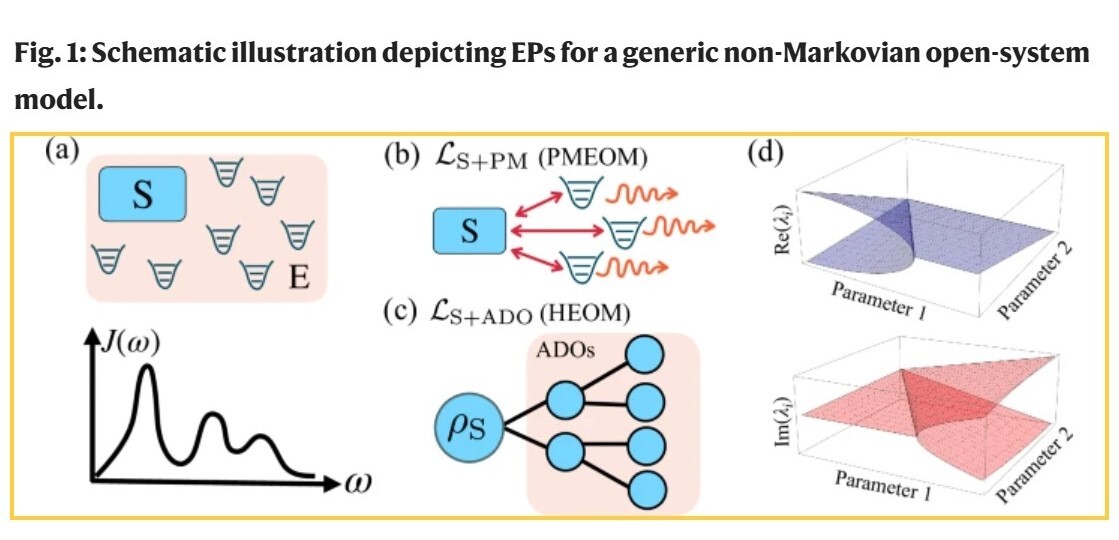New Chapter in Precise Measurement: Latest Research from QFort at the National Cheng Kung University Paves the Way for Innovative High-Sensitivity Quantum Sensors
Written by NCKU QFort.Image credit to NCKU News Center.
Imagine a future world where high-sensitivity quantum sensors can detect even the smallest tumors, leaving nothing hidden. A research team led by Professor Yuen-Nan Chen, Director of the Center for Quantum Frontiers of Research & Technology (QFort) at National Cheng Kung University, has successfully proposed a groundbreaking theoretical framework that precisely describes exceptional points in non-Markovian open quantum systems. This achievement opens up new possibilities for designing high-sensitivity quantum sensors and advancing quantum technology applications. The results were published in Nature Communications. Non-Markovian quantum exceptional points

The research team led by Yueh-Nan Chen, Director QFort at National Cheng Kung University, has successfully proposed a novel theoretical framework that can accurately describe non-Markovian quantum exceptional points. The result is published in Nature Communications.
Professor Yuen-Nan Chen, a faculty member of the Department of Physics at NCKU, explained that Nature Communications is a renowned sub-journal of the globally influential Nature journal group, and its scientific authority is undeniable. He emphasized that the team's theory is very comprehensive and addresses a gap in the field, as no precise description of exceptional points in non-Markovian open quantum systems had been presented before.

Schematic illustration of the theory for non-Markovian quantum exceptional points.
The general public may find it difficult to understand complex terms such as quantum mechanics, non-Markovian processes, and exceptional points. However, Professor Chen noted that these theories have already been applied in human life. For example, the quantum mechanics behind the most commonly used 3C products (computers, communication devices, and consumer electronics) is essential. The creation of new theories often disrupts the traditional, changing human life.
This achievement was completed by the team led by Professor Chen, with members including postdoctoral researchers Jhen-Dong Lin and Po-Chen Kuo from the QFort, in collaboration with researchers from Japan and Poland.

The research team led by Yueh-Nan Chen (center), Director of QFort at National Cheng Kung University, has successfully proposed a novel theoretical framework that can accurately describe non-Markovian quantum exceptional points. The result is published in Nature Communications. Jhen-Dong Lin (right) and Po-Chen Kuo (left) are postdoctoral researchers in the team.
Jhen-Dong Lin pointed out that exceptional points in open quantum systems have been a research focus in recent years due to their potential to enhance quantum sensing capabilities. However, previous studies were often limited to idealized Markov conditions and did not adequately consider the non-Markovian memory effects present in real-world systems. While there has been much research on non-Markovian systems, a comprehensive theoretical framework has been lacking.
Jhen-Dong Lin mentioned that the team had been focused on this area since 2018, and in 2023, during his visit at the RIKEN in Japan, he discovered an excellent theoretical tool that could precisely describe exceptional points in non-Markovian quantum systems. This led to the development of a complete theory, providing directions for experimental verification.
What are exceptional points? Professor Chen explained that if you imagine a door controlled by a spring and hydraulic system, the door needs to be adjusted to the most appropriate force to close smoothly. This optimal force can be described by an exceptional point. This research for the first time verified how exceptional points, influenced by non-Markovian memory effects, can increase in quantity or elevate in order. It not only fills a gap in quantum theory but also opens up new possibilities for designing high-sensitivity quantum sensors and advancing quantum technology applications.
Professor Chen noted that the high sensitivity of exceptional points allows even the slightest changes to be amplified by more than a hundred times. Although research on exceptional points is still in the academic discussion phase, it sparks possibilities for the future. Perhaps one day, this quantum sensing technology will be applied in medical fields, even for cancer tumor detection.
In fact, quantum sensing already has practical applications. For example, astronomical observations using quantum interference can detect gravitational waves generated by distant black holes. Professor Chen believes that under this new theoretical framework, many new technologies and devices will emerge, offering exciting possibilities for the future.
Provider:
NCKU News Center
Date:
2025-02-19
Click Num:
Share

